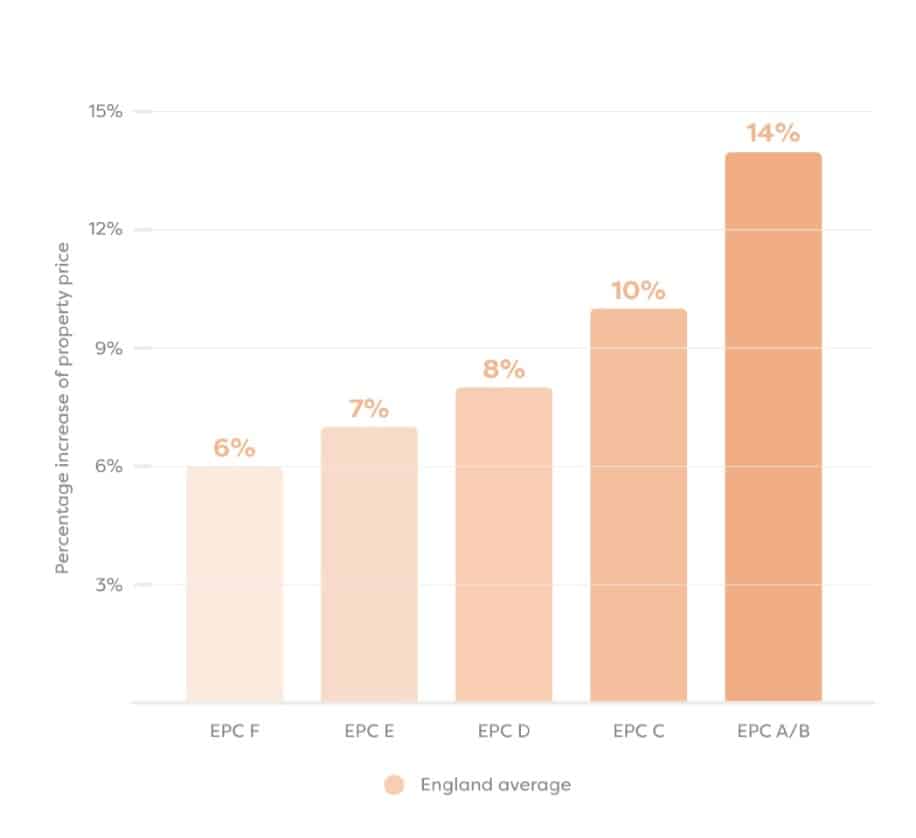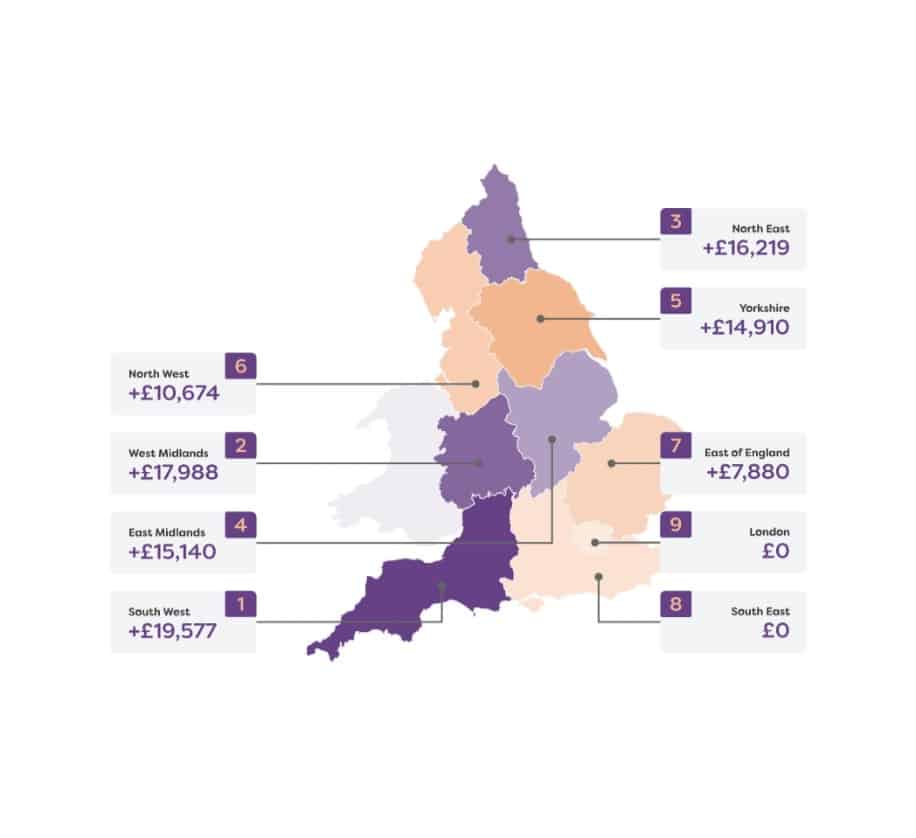
External Wall Insulation (EWI) can significantly improve your Energy Performance Certificate (EPC) rating, but the exact amount will depend on various factors. These include the property's current condition and the quality of the existing insulation.
What is the EPC rating?
The Energy Performance Certificate (EPC) is a document that provides an energy efficiency rating for buildings in the UK. It is required when a property is built, sold, or rented. EPC ratings range from A (most efficient) to G (least efficient), and they are based on factors such as insulation, heating and cooling systems, and the use of renewable energy. The certificate also provides recommendations for improving the property's energy efficiency.
In the UK, the average EPC rating for a home is around D. However, this varies depending on the age, construction, and location of the property. Older properties, for example, are more likely to have lower EPC ratings due to less efficient insulation and heating systems. In contrast, newer buildings typically have better insulation, energy-efficient windows, and modern heating systems, leading to higher EPC ratings.
The UK government has set a target for as many homes as possible to achieve an EPC rating of C by 2035 as part of its commitment to reduce greenhouse gas emissions and tackle climate change. This target also aligns with the Minimum Energy Efficiency Standards (MEES) for rented properties. The MEES currently requires a minimum EPC rating of E. The government plans to increase this requirement to a minimum rating of C for new tenancies by 2025 and all existing residences by 2028.
Homeowners and landlords should aim for a C rating to meet future regulations. Moreover, these measures improve their properties' energy efficiency, comfort, and value. To achieve this, they may need to upgrade insulation, install energy-efficient heating and cooling systems, and use renewable energy sources like solar panels.
How much does the EPC rating improve with EWI?
To give a broad estimate, applying EWI to a poorly insulated property could potentially improve the EPC rating by several bands. For instance, a property rated E/F could be brought up to a C or B rating. The rating depends on other factors, such as the heating system's efficiency, windows, and roof insulation.
- Insulation - This includes insulation in the walls, floors, and roof of the property. The better the insulation, the less heat will be lost, and the more energy-efficient the property will be.
- Heating and Cooling Systems - The efficiency of the property's boiler, radiators, air conditioning, and other heating and cooling systems are accounted for. More modern and efficient systems will typically lead to a higher EPC rating.
- Use of Renewable Energy - The use of renewable energy sources. Solar panels or wind turbines significantly improve a property's EPC rating. They generate clean energy and reduce reliance on fossil fuels.
- Windows - Double-glazed windows and other efficient types can prevent heat loss, contributing to a higher EPC rating.
It's important to note that improving the EPC rating is not just about reducing energy bills and carbon footprint. It can also increase a property's comfort and value and meet certain regulatory requirements. For example, in the UK, rented properties must have an EPC rating of at least E.
However, to get an accurate estimation, you would need to have an EPC assessment. The assessment is performed by a qualified assessor before and after the installation of EWI. This professional will be able to analyse all the factors and give you a precise measurement of how much your EPC rating can improve with EWI.
What about property value?
Improving a property's EPC rating can add value, but the exact amount can be quite variable. The rationale behind this is quite straightforward. Homes with higher EPC ratings are more energy-efficient, which means lower energy bills for the occupants. These homes are generally more comfortable, with fewer drafts and better temperature control. Furthermore, as awareness of climate change grows, many buyers and renters are placing increasing importance on the environmental impact of their housing.
However, it's important to note that while improving a property's energy efficiency is likely to make it more attractive to buyers and renters, it's not guaranteed to increase its value by a specific amount. The property market is influenced by many factors, and energy efficiency is just one of them.
As the graph below shows, improving an EPC rating is a significant benefit. A percentage point can increase property value significantly. For example, a 6% increase in property value on a property worth £250,000 results in a value of £265,000. This is just a simple increase from a band G to F. The initial outlay for energy efficiency measures can be high, but the return is significant. However, the location of the property is still crucial. Areas with higher property values, like London and the South East, show limited increases in value.
The improvement from middling to higher bands is more taxing as it requires extreme levels of energy efficiency. The A band of the EPC rating is for properties with an SAP rating of 92-100. Approximately 1% of the UK housing stock can satisfy this level. Therefore, you can envision how difficult this standard is to achieve. However, solutions are present in developing communities like Howgate Close.
Source: https://www.moneysupermarket.com/gas-and-electricity/value-of-efficiency/
Which? calls for an update on EPCs in 2024
A consumer watchdog has called for urgent reforms to Energy Performance Certificates (EPCs), highlighting their key role in the UK's goal for improved home energy efficiency. As the 2050 deadline to meet Net Zero targets approaches, there's increasing scrutiny on the effectiveness of EPCs, especially given their potential to help homeowners manage energy costs.
EPCs are designed to provide insights into a property’s energy efficiency for prospective buyers and tenants, yet many fail to deliver accurate or useful information. According to a government survey, few people understand or are even aware of their EPC ratings, and even fewer have noticed the section advising on potential improvements.
Issues cited include the inaccuracy of many EPCs, the complexity of the metrics, and a lack of updated and relevant information that could aid consumer decisions. A previous investigation by the Sunday Times revealed significant inaccuracies in EPC assessments, prompting calls for a more customised approach to each property.
Which? recommends various improvements, including updating the metrics used in EPCs to better reflect modern energy use and needs, revising training for Energy Assessors, enhancing the audit process, and keeping EPCs regularly updated. They also advocate for EPCs to incorporate details on transitioning to low-carbon heating systems and provide advice specific to the type of property in question.
How much EWI do you need?
The thickness of EWI is dependent on the type of EWI material chosen. External wall insulation relies on an uninterrupted thermal envelope to minimise cold bridging. Therefore, you will require wall, floor, and roof insulation to improve your EPC rating effectively.
The EWI industry tends to focus on U-values as the barometer for energy efficiency. Current regulations dictate that new builds and retrofits require a U-value of 0.3W/m²K. At EWI Store, we stock three types of external wall insulation with varying U-values and R-values. Knowing these values allows us to determine what thickness most properties require to lower their U-value; Mineral Wool requires 110mm, EPS 90mm, and Kingspan K5 requires 60m.
If you consider EWI to improve your EPC rating, let us know in the comments! Alternatively, if you have any questions, drop them below.


